Table of contents
Introduction
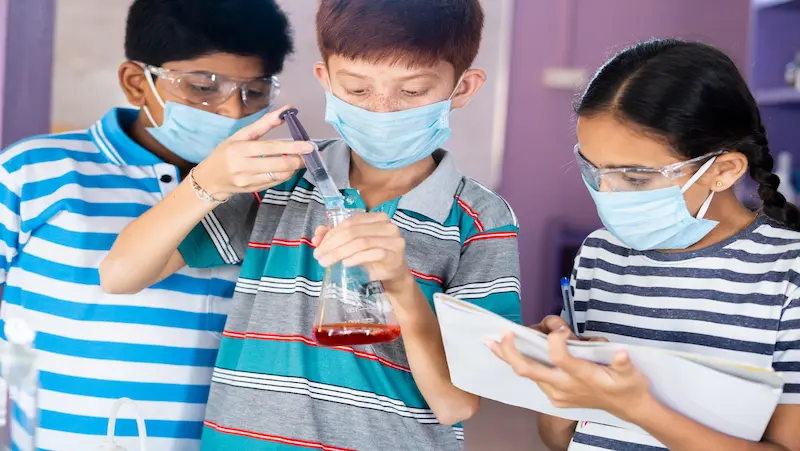
Science projects are a great way to spark your kids’ curiosity and interest in the world around them. They can also help them develop important skills such as observation, experimentation, and critical thinking. Whether you are a parent or an educator, you can engage your kids in fun and educational science kits for kids projects using materials you already have at home or in the classroom. In this blog post, we will share some ideas for science projects for kids of different age groups, from preschoolers to high school students. We will also provide some tips on how to create a conducive learning environment for science projects and some additional resources and references for further exploration.
Easy Science Projects for Young Children
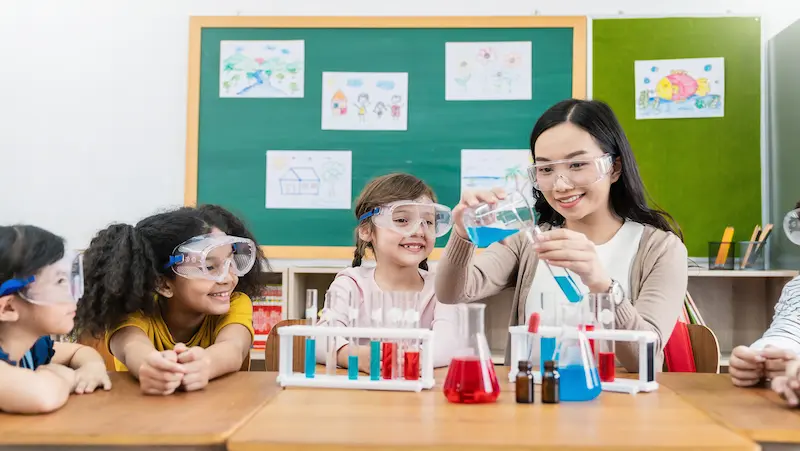
Preschoolers and early elementary school kids are naturally curious and eager to learn new things. You can nurture their scientific mindset by introducing them to simple science projects that explore basic scientific concepts in a fun free games for kids and interactive way. Here are some examples of easy science projects for young children:
- Lava Lamp: Use density to build a funky lamp using vegetable oil, water, food coloring, and Alka-Seltzer tablets. Watch how the colored bubbles move up and down in the bottle as the tablets dissolve and produce gas.
- Orange Fizz: Foamy fun in your mouth using oranges, baking soda, and water. Cut an orange in half and squeeze some juice into a cup. Add some baking soda and stir well. Taste the mixture and feel the fizz on your tongue.
- Dry Erase: Draw figures that become animated using dry erase markers, a glass bowl or plate, and some water. Draw simple shapes or characters on the glass surface and let them dry completely. Then pour some water over them and watch them come to life.
Intermediate Science Projects for Older Children
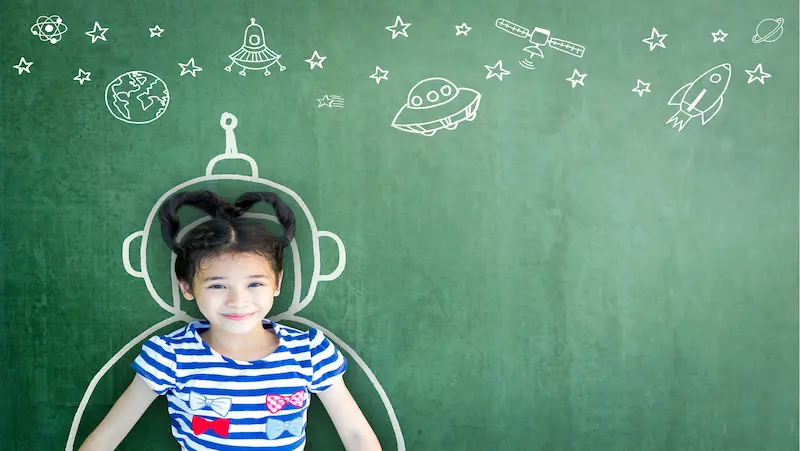
Elementary and middle school kids can tackle more complex science projects that develop their reasoning and creativity skills. You can support them to inquire, predict, experiment, and reflect on their findings. Here are some examples:
- Balloon-Powered Car: Make a car with cardboard, caps, straws, tape, and a balloon. Cut cardboard and put straws and caps as wheels. Tape balloon and straw on top. Blow balloon and close it. Put car down and release balloon. See how far it goes.
- Elephant Toothpaste: Make foam with peroxide, soap, yeast, water, and color. Put peroxide, soap, and color in bottle. Mix yeast and water in cup. Pour yeast in bottle and move away. See foam come out like elephant paste.
- Rainbow in a Glass: Create a Skittles rainbow by placing different colored Skittles around a plate’s edge. Add enough water to cover them and wait a few minutes for a rainbow to appear in the plate’s center.
Advanced Science Projects for High School Students

High school students can explore specific scientific fields through STEM activities. These projects cater to science fairs, competitions, or personal enrichment. Here are advanced science project examples for high school students.
- Solar Eclipse Kit: Create an eclipse box using cardboard, foil, tape, scissors, a pin, and paper. Cut holes in one box, cover one with foil, and make a small pinhole. Cut a hole in the second box and attach white paper inside. Align the boxes, aim the foil hole at the sun, and view the sun’s image on the paper.
- Cool Crystals: Grow crystals with salt, water, a glass jar, a spoon, a string, and a pencil. Dissolve salt in boiling water, pour it into the jar. Tie string to pencil and weight, hang it in the solution. Wait a few days, observe crystal formation on the string.
- Mind of a Student: Compare chemical reactions with film canisters, Alka-Seltzer tablets, water, and vinegar. Fill one canister with water, add half an Alka-Seltzer tablet, close tightly, and place upside down. Repeat with vinegar instead of water. Observe which canister pops first and their respective heights.
Know more about coding courses for kids in this article
Tips for Parents and Educators
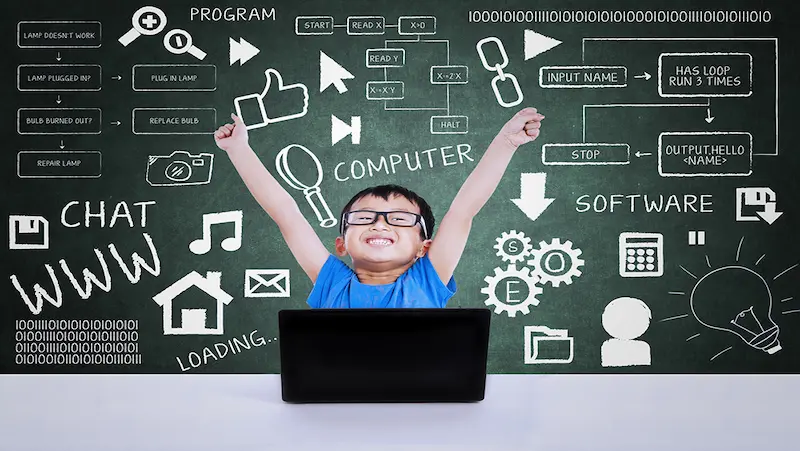
Science projects can be a lot of fun games for kids, but they also require some planning and preparation. Here are some tips on how to create a conducive learning environment for science projects:
• Choose science projects aligned with your kids’ interests, abilities, and goals.
• Gather all necessary materials and check for safety hazards or allergies.
• Provide clear instructions and guidance for each step of the project.
• Encourage questions, predictions, observations, and result sharing.
• Use worksheets, journals, charts, or graphs to organize data.
• Link science projects to relevant topics or standards in homeschooling or classrooms.
• Extend learning by researching more or exploring project variations.
Additional Resources and References
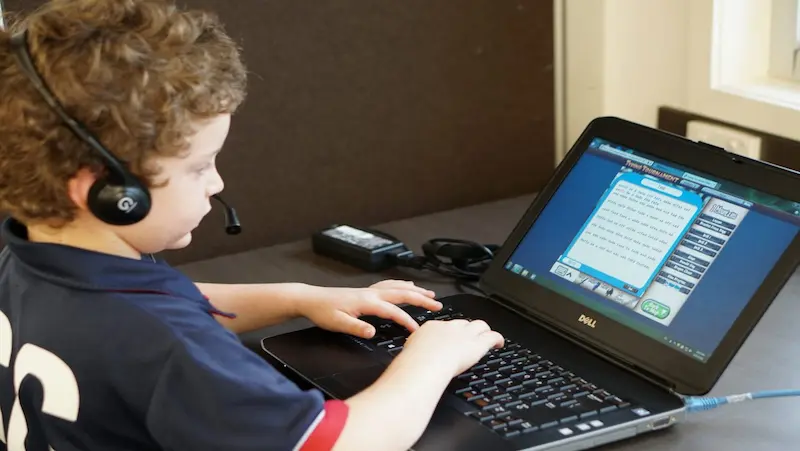
If you want to learn more about science projects for kids, here are some useful links, books for kids, and online resources for further exploration:
• Science Buddies: A website that offers over 1,200 free science projects for K-12 students in 32 different areas of science.
• We Are Teachers: A website that features 70 easy science experiments using materials you already have at home or in the classroom.
• Sciencing: A website that provides science project ideas for kids, middle school students, and high school students in various categories such as biology, chemistry, physics, earth science, engineering, and more.
• Awesome Science Experiments for Kids: 100+ Fun STEM / STEAM Projects and Why They Work: A book that contains over 100 fun facts for kids and easy science experiments for kids ages 5 to 10.
• The Everything Kids’ Science Experiments Book: Boil Ice, Float Water, Measure Gravity-Challenge the World Around You!: A book that contains over 50 science experiments for kids ages 7 to 12.
Explore more about robotics projects for kids
Conclusion
Science projects are an excellent way to engage your kids in hands-on learning experiences that can foster their curiosity, creativity, and confidence. Whether you are looking for easy science projects for young children, intermediate science projects for older children, or advanced science projects for high school students, you can find plenty of ideas online or in books that use materials you already have at home or in the classroom. We hope this blog post has given you some inspiration and tips on how to create exciting and educational games for kids science projects for kids.
Join us in empowering the next generation with the skills they need to excel, create, and lead in an ever-evolving world. Choose BrightChamps for a transformative educational journey that lights up the path to success for your child.
Frequently Asked Questions
Some easy science projects for kids are lava lamp, orange fizz, dry erase, storm in a glass, home-made volcano.
Choose interesting topics, involve them in planning, provide positive feedback, and add creativity or surprise to experiments.
Yes, adjust difficulty and safety according to age. Modify projects based on your child’s needs.
Most materials are commonly available at home or school. Some may require easily accessible items or additional
Parents can incorporate science projects into homeschooling by linking them to relevant topics or standards that they are teaching their child. They can also use science projects as a way to enhance their child’s skills in reading, writing, math, art, and other subjects. Parents can also use science projects as a way to motivate their child to learn more about science and the world around them.

 We are an army of educators and passionate learners from BrightChamps family, committed to providing free learning resources to kids, parents & students.
We are an army of educators and passionate learners from BrightChamps family, committed to providing free learning resources to kids, parents & students.








